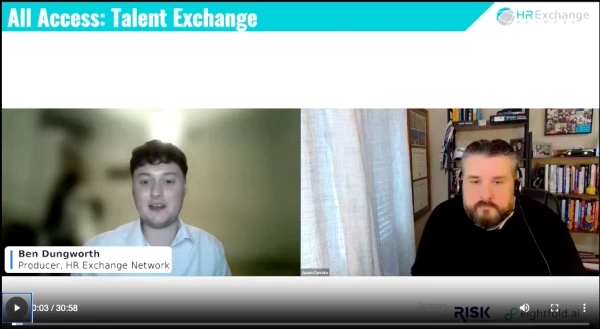Technologically Enhancing the Candidate Experience
Add bookmarkHR professionals get it. People are attached to their mobile devices. Smartphones, tablets, phablets, laptops. Devices are the technological extension of a person’s physical being, and in more ways than one. Those devices also serve as an extension of the person’s mental being.
Think about it.
People live on their smart devices. They pay for their Starbucks coffee via Apple Pay or another similar service. They catalogue their lives from one day to the next. They relive moments forgotten through photos and share those memories via the various social media apps available.
And they also apply for jobs.
The Technological Rabbit Hole to Job Opportunities
Job seekers, more often than not, expect their candidate experience to include some form of technology. After all, the person found the job opening on their device. Why not apply and interview using it, or at least some other provided form of technology?
Any candidate worth their salt will research the organization. They’ll pour over the company website looking for bits of information that will make them seem more attractive to a potential employer. It’s more than just knowing the organization’s information. It’s being able to demonstrate it through assessments and incorporating it in to the chosen technology used by the organization.
Companies not only know this, but they expect it.
Does anybody know how to fly this thing?
There is a plethora of airlines available for public use. Among them, Allegiant Air. The smaller company is no stranger to technology. In fact, it permeates their hiring process.
The company launched a pilot assessment program through a third-party organization called Outmatch. Through various research avenues, Outmatch created a series of questions designed to get at the heart of how a pilot’s mind should work.
“We really wanted to hone in on leadership questions, troubleshooting, problem solving, managing schedules in terms of… there's a lot of changes that goes on at the airlines," Rebecca Ahmed, the former Manager of Talent Acquisition and Employment Services for Allegiant said. "It produced a candidate profile so when the HR team, the chief pilots would look at it... it would hone in on areas that would potentially be a concern or where they needed more information."
While that was the main focus of the assessment, Ahmed said there was a secondary focus.
Human Resources professionals are used to asking questions and really digging in to a candidate’s past. Pilots… not so much. Ahmed said when it comes to asking questions, pilots want tailored questions. Outmatch helped create those questions.
Life-saving measures
Through Outmatch, Allegiant was able to learn a lot about their pilot candidates. An area where the company was specifically interested was the mental condition of candidates.
It was sparked by the crash of Germanwings Flight 9525 in 2015. During the incident, co-pilot Andreas Lubitz deliberately crashed the jet into the French Alps, killing all 150 souls on board. In the weeks leading up to the crash, Lubitz had spoken with dozens of doctors about depression and had even been treated for it before. None of the doctors he spoke with reported their concerns to the appropriate individuals, which allowed Lubitz to continue flying.
Allegiant wanted to make sure they were assessing pilots for these types of concerns before putting them behind the steering mechanism of an airplane.
"We weren't doing our due diligence in terms of having a conversation and we were asking just the same questions every single time,” Ahmed said. “And they focus so much more on skill than thought process and I think this is where it really added to the thought process of a pilot and we were able to say, ‘ok, this is how he handled the situation’ because we asked so many more questions."
Technical skill is equally important and is still a huge part of the process of being a pilot.
Along with Outmatch, Allegiant also partnered with Fulcrum which focused much more on technical skill assessment. Candidates were scored on how quickly they answered questions. If they passed the test, they were then subjected to the Outmatch assessment. The two scores were combined and a decision was made on whether or not to bring the candidate in for an interview.
Interviewing on Camera
The interview process designed and employed by Allegiant is rather hefty. And it’s all starts with a camera.
When first introduced, video interviews were conducted for flight attendant candidates and was later expanded to pilots.
There is more to conducting a video interview than one might think. And there’s a lot of learn as well.
"When you do a video interview first, you get to see so much about a candidate,” Ahmed explained. “What's their preparation? How did they speak? How polished are they? Did they think about their environment when they're speaking?"
Unlike a real interview, however, candidates can redo an answer(s), but they can only do so two times.
The video interviews are assessed by a team of 20 trained members. They score the videos and that determines whether a candidate receives a more traditional in-person interview.
Tech Forward
Ahmed says the inclusion of technology in recruitment and hiring streamlined the processes quite a bit.
But technology does not end there.
Ahmed says flight attendants are required to be able to operate an iPad. If they cannot use it, they simply can’t be a flight attendant.
That seems to indicate a trend for job seekers. Technology has infiltrated every global industry. With the exception of some occupations, technology usage abilities are paramount to organizations. Job seekers must have this trait. Without it, a candidate’s ability to land a job is considerably damaged.
Rebecca Ahmed is currently the Director of HR Systems and Operations at Pinnacle Entertainment. Ahmed previously held the position of Manager of Talent Acquisition and Employment Services for Allegiant Air. She is also a panelist attending the HR Tech Exchange in Dallas, December 10-12, 2017
















